
Ensemble Studio Theatre has been holding their marathon of one-act plays since 1977. Now in the third series of their 36th year, they're offering a myriad of exciting and innovative work by playwrights Zakiyyah Alexander, Edith Freni, Amy Fox, Donald Marcus, and Elyzabeth Gregory Wilder. We got the chance to chat with the writers about their plays, the festival, and their work at large. Check out the interviews below!
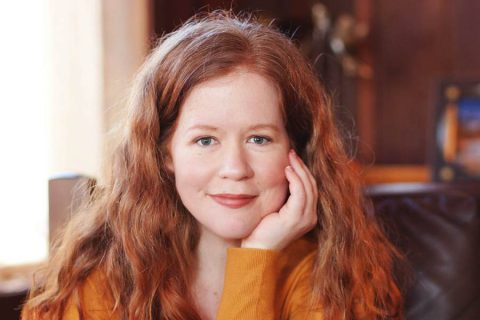 Elyzabeth Gregory Wilder, Santa Doesn't Come to the Holiday Inn
Elyzabeth Gregory Wilder, Santa Doesn't Come to the Holiday Inn
Tell us about your play!
Santa Doesn't Come to the Holiday Inn is about couple trying to create a memorable Christmas for their daughter despite their recent divorce.
As a playwright, what are the challenges and rewards of working in the one-act medium?
One act plays require you to distill your story down to the most important moment. I complain about them a lot, but I've had two one-act plays that ended up becoming full length plays.
What inspired you to write this play? Do you find yourself returning to similar ideas/themes in your work?
I think the play addresses a lot of the issues of modern parenting in a way that I hope is honest and maybe a little heartbreaking.
Do you have any playwrights or writers of one-acts who particularly inspire you or who you try to emulate in certain capacities in your own work?
When I was a kid, our public library in Alabama had a shelf of Shakespeare, a shelf of Ibsen and Chekov, a shelf of O'Neill and Williams, and the complete works of Neil Simon. So those were the plays I read in high school. I fell in love with Tennessee Williams' 27 Wagons Full of Cotton and Other Plays.
In writing this play and/or in approaching writing a play in general, are there any things you always keep in mind?
I always ask myself why I want to tell this particular story and why now? I also think in terms of the journey of the play. I find the most rewarding stories the ones that end and you feel like you've gone on a journey along with the characters.
How important is it to you that your work relate to our current political/social climate?
I think as I've gotten older the stories that I feel compelled to tell have gotten bigger. I love the quote, "All art must strive to answer the question, how then must we live?" I believe it's more relevant and important now that ever.
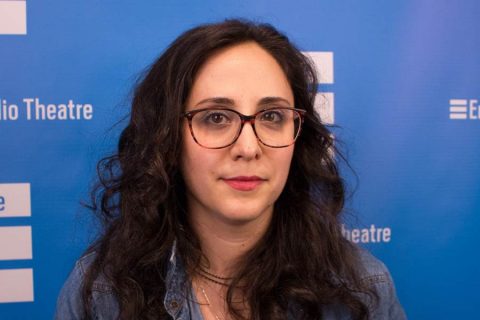 Edith Freni, Female Beginner
Edith Freni, Female Beginner
Tell us about your play!
Female Beginner is about a young woman who is coming into consciousness about her family's political history and the mythology she's been raised to accept as fact. The play takes place on the night of an important fundraising dinner for which she is supposed to give a speech in her father's honor. But when she pitches ideas for some changes to the speech, things begin to unravel and drama ensues.
As a playwright, what are the challenges and rewards of working in the one-act medium?
With one-acts you have to be very clear, very specific and you don't get a lot of time to set things up. So it's basically "Lights up on the complication," which I think is super exciting. And I can write one in a day and then have something to show for myself! It's not a multi-year process of research, planning, writing and development.
What inspired you to write this play? Do you find yourself returning to similar ideas/themes in your work?
I wrote it for an election night event at Georgia College and State University (they commissioned the play) and was inspired by a New York Times article about why certain men want their daughters to be like Ivanka but their wives to be like Melania. I was interested in exploring that dichotomy. I don't consider myself an outwardly political playwright but I also don't think this is a political play. It's a psycho-sexual exploration of power dynamics in intimate relationships and yes, I do find myself writing those kinds of plays quite a bit.
Do you have any playwrights or writers of one-acts who particularly inspire you or who you try to emulate in certain capacities in your own work?
I am inspired by great playwrights who are also great teachers. Writers like Naomi Iizuka, Rebecca Gilman, Gary Garrison (a master of the short play) and Lucas Hnath. These writers are rigorous in their craft and their pedagogy. They practice what they preach and I find that infinitely inspiring.
In writing this play and/or in approaching writing a play in general, are there any things you always keep in mind?
More and more my work is becoming about making connections (between ideas, historical moments, real people living and dead) and using playwriting as a means of educating my audience. I'm becoming less and less interested in writing plays that are obviously sourced from my own life (though personal experience always manages to leak through) and more interested in front-loading research, becoming saturated by existing ideas and then letting my synapses fire to find connections between seemingly disparate topics. For example, I'm about to start work on a 48-hour playwriting project inspired by Mary Shelley's Frankenstein and the work of several STEM faculty members from Emory University, including David Lynn, a biomolecular chemist who specializes in molecular evolution, the evolution of biological order and the origins of life. The prospect a finding the play in all of that source material really gets me going. You can read more about the project at http://448plays.tumblr.com/
How important is it to you that your work relate to our current political/social climate?
I'd love my plays to have resonance many, many years from now so I'm not super interested in writing anything that is concretely tied to what is happening right now. That said, my Marathon play feels pretty topical!
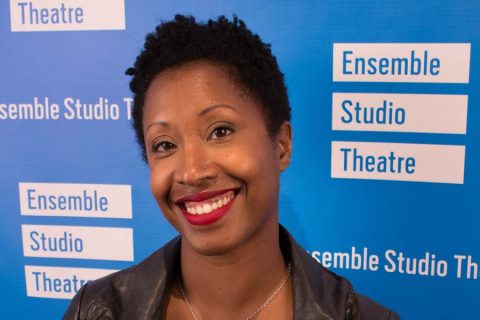 Zakiyyah Alexander, The Good Muslim
Zakiyyah Alexander, The Good Muslim
Tell us about your play!
This play is about a young woman, a native New Yorker who happens to be Muslim-American. It's a story of how she comes to terms with being herself.
As a playwright, what are the challenges and rewards of working in the one-act medium?
The challenges are the same I have writing any script, but the rewards are the ability to tell a full story economically. It's particularly gratifying because there's no time to procrastinate; you've got to move fast.
What inspired you to write this play? Do you find yourself returning to similar ideas/themes in your work?
I was commissioned to write a one act for this festival, and then the election happened - and everything changed. I couldn't write the drama I originally planned. I knew I had to use this opportunity to discuss the issues I had with this changing America. My inspiration was really the social climate we're living in. I'm not sure if I'll return to these specific themes, but I will definitely be thinking about this new America and in what ways we can comment/dramatize these dramatic and often problematic shifts we find ourselves in.
Do you have any playwrights or writers of one-acts who particularly inspire you or who you try to emulate in certain capacities in your own work?
Naomi Wallace, Naomi Iizuka, and Adrienne Kennedy are some of the writers I'm most inspired by. They have had quiet careers writing powerful plays that have not had the commercial success as some writers - and yet their work is so powerful on and off the page. They inspire me to write what I want, and write good work without censor.
In writing this play and/or in approaching writing a play in general, are there any things you always keep in mind?
Specificity is generally what I try to keep in mind. My characters are generally very different - so I try to be very careful with their voices and to make sure they land as authentic.
How important is it to you that your work relate to our current political/social climate?
I want my work to be timeless, so I want to keep our political climate in mind while also thinking broadly about the themes we will always have to address. This particular play was written out of a very specific place/time we're living in, but (for better or worse) I think the themes addressed here will stand the test of time.
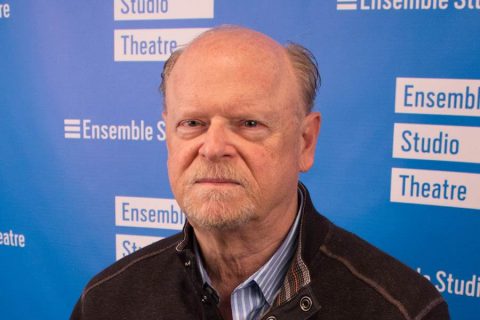 Donald Marcus, Intensive Care
Donald Marcus, Intensive Care
Tell us about your play!
I carried the characters and the situation around in my head for years before I sat down and wrote it.
As a playwright, what are the challenges and rewards of working in the one-act medium?
I love the requisite compression of the one-act. Trying to make the play as dense and rich as possible.
What inspired you to write this play?
Intensive Care is a two-character play, both of which are based on real people I knew. They were very different men, came from divergent backgrounds, and I was fascinated by the idea of them meeting -- something that would never have happened in life.
Do you find yourself returning to similar ideas/themes in your work?
Not that I'm aware of.
Do you have any playwrights or writers of one-acts who particularly inspire you or who you try to emulate in certain capacities in your own work?
Emulate, no. But early in my career I was privileged to work with Frank Gilroy on some of his one-acts and I learned a lot from him. He was a wonderful man, as well.
In writing this play and/or in approaching writing a play in general, are there any things you always keep in mind?
Compression. Doing a lot with a little.
How important is it to you that your work relate to our current political/social climate?
It is important, but I think if you're writing truthfully about things that are important, your work will inevitably be relevant.
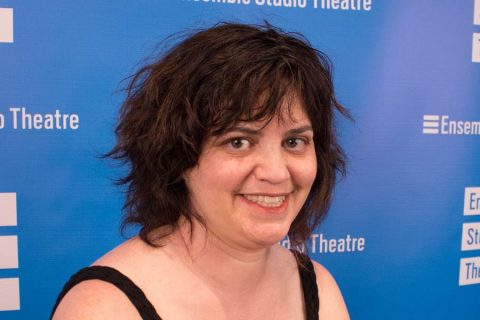 Amy Fox, Good Results Are Difficult When Indifference Predominates
Amy Fox, Good Results Are Difficult When Indifference Predominates
Tell us about your play!
My play is about women finding their strength and their voices to resist what society imposes on them. One character make plans to attend the Women's March, while her cousin prefers to knit a "pussy hat," but their attitudes shift after a visit from a mysterious woman relaying actual instructions from the 1949 Singer Sewing Machine.
As a playwright, what are the challenges and rewards of working in the one-act medium?
To me a one act is a glimpse of something. It can be refreshing to step away from the dense process of writing full length material and dip your toe into something new. I also find I like short plays almost entirely out of right brain instinct, whereas longer work is a combination of instinct and more left brained craft.
What inspired you to write this play? Do you find yourself returning to similar ideas/themes in your work?
I had seen these Singer Sewing Machine instructions from 1949, which encourage women to make themselves attractive while sewing, and I was determined to work them into a play. When a friend knitted me a pussy hat for the Women's March, I had the idea to combine the two stories of how women either embrace or resist gender expectations. These are big things in all of my work.
Do you have any playwrights or writers of one-acts who particularly inspire you or who you try to emulate in certain capacities in your own work?
Too many to name! But I always loved the David Hare play Plenty, which is a longer play made up of a series of brilliant small scenes that has influenced my writing of one acts.
In writing this play and/or in approaching writing a play in general, are there any things you always keep in mind?
I always begin by listening to the voices of my characters, and over the process they shape what the play should be. At some point I always step back and look at the play from a craft perspective, but I never start there.
How important is it to you that your work relate to our current political/social climate?
Increasingly important. I think we're seeing the cost of what happens when people separate politics from their daily lives. Everyone has to take responsibility for the world we want to see, and if your talent is creating art, that has to be part of your responsibility. Maybe not in every project, but in your overall vision for your work and your voice.